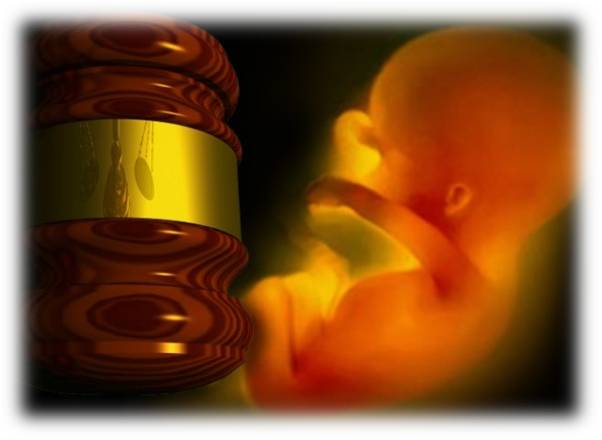It’s a unique situation when eligible voters team up with preborn babies to fight a violation of their constitutional rights. That’s exactly what’s happening in Rhode Island, as the current United States Secretary of Commerce and her former Rhode Island leadership team are being sued by adult voters and children in utero.
The Thomas More Society has filed an amicus curiae (friend of the court) brief in a lawsuit against Rhode Island’s former governor Gina Raimondo and her administration. The filing is in support of voters, pre-born babies, their mothers, and Catholics For Life, Inc. The brief, submitted to the Supreme Court of Rhode Island on July 15, 2021, argues that voters and preborn children have standing to challenge the constitutionality of Rhode Island’s 2019 Reproductive Privacy Act, which the plaintiffs say deprived them of their right to vote on an alleged constitutional right to abortion and robbed the babies of their legal rights as a person.
Thomas Olp, Vice President and Senior Counsel at the Thomas More Society, explained the substantial public interest in this case. “There are several issues here in which a lower court erred,” Olp explained. “In this case the personhood of a pre- or post-viable child in utero is not negated by the United States Supreme Court decision in Roe v. Wade. We are asking the court to acknowledge that a preborn child has standing to challenge the Reproductive Privacy Act’s removal of legal protections under Rhode Island law, including the fetal homicide law and other laws that may protect her.”
LifeNews is now on GETTR. Please follow us for the latest pro-life news at https://gettr.com/user/lifenewshq
The brief amplifies this issue stating, “In situations when the rights of a post-viable child…under fetal homicide or other protective laws, do not impinge on a woman’s right to abortion found by the U.S. Supreme Court to exist under the U.S. Constitution, it is erroneous and unjust to ignore injury to their legal interests on the ground that they are not ‘persons’ in the abortion context.”
In addition to the personhood rights of preborn children, the filing supports the rights of eligible Rhode Island voters who would have voted against a constitutional amendment recognizing the right of abortion had it been put to the vote of the electorate. The brief explains that these voters were illegally deprived of their right to vote on what amounts to a constitutional amendment when the so-named Rhode Island Reproductive Privacy Act was passed by the Rhode Island General Assembly and signed into law by the state’s governor in 2019.
The law, which recognized a right of abortion, in effect amended the state’s constitution, which explicitly states it does not grant or secure a right of abortion. Since the constitution requires that an amendment be approved through a vote of the “whole people”, which did not occur here, Rhode Island voters who oppose a change in the constitution on abortion were denied their constitutional right to vote against it.
Read the Brief of Amicus Curiae filed by the Thomas More Society with the Supreme Court of Rhode Island on July 15, 2021, in Michael Benson et al. v. Gina Raimondo et al. here








